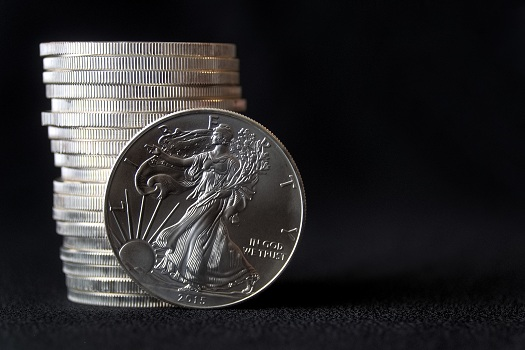Should I Buy Coins Containing 90 Percent Silver?
Coins with a nice shiny silver appearance aren’t too hard to come by. You might even have some in your pocket right now. However, unless those coins were minted prior to 1965, they’re not 90 percent silver or anything close to pure silver. This is one of the more compelling reasons to consider buying 90 percent silver coins, especially if you’re a collector or looking for the potential to get a good return on your investment. The precious metals experts from First National Bullion, the silver and gold dealers San Diego collectors rely on for outstanding quality and service, explain.
Older 90 Percent Silver Coins Are Worth at Least Their Face Value
All silver half-dollars, quarters, and dimes made between the 1830s and just prior to 1965 are, at a minimum, 90 percent silver. These coins are often referred to as “junk silver,” but they’re hardly junk when it comes to their value. At the very least, these older silver coins are worth their face value.
Some of These Coins Are Rare & Extremely Valuable
Since 90 percent silver coins are older and no longer officially minted, they can be worth much more than their actual face value. For example, an 1894-S Barber dime has a stated value of nearly $2 million. In this instance, the reason is because only 24 of these silver coins were made.
Realistically, finds of this nature are rare. That being said, it’s still possible to purchase older 90 percent silver coins that increase in value over time. You may also be able to find a collector willing to pay more than what you paid.
Know What to Expect to Pay for 90 Percent Silver Coins
What you’ll pay for any 90 percent silver coin depends on several factors, such as the condition of the coin. For a well-worn common date coin, expect the price to be based on the current spot price of silver and the face value of the coin. Additional factors that tend to influence what you’ll initially pay for these coins include:
• The date the coin was minted
• The number of coins you’re interested in that are known to still exist
• The general condition of the coin
• Any unique design characteristics
Sell Your Coins for Scrap
With 90 percent silver coins that aren’t too valuable, you may prefer to sell what you purchase for scrap once you get enough of them. How much you’ll be able to make by doing this depends largely on the spot price of silver at any given moment. As long as you keep an eye on market trends with silver, you may be able to time your buying and selling in a way that rewards you with a profit.
Brush Up on Your Silver Coin Knowledge
Silver coins with minimum 90 percent silver content can be a smart purchase if you’re a well-informed buyer. There are numerous online sources you can use to see which specific coins falling into this category are more valuable or sought after most by collectors. If you’re a collector yourself or planning to start a silver coin collection, this added knowledge gives you some guidance for your purchases.
Whether you’re a veteran coin collector or you’re simply looking to sell your old silver coins, reach out to the experts at First National Bullion. In addition to buying and selling coins, we also offer a huge selection of gold, platinum, and silver bars. San Diego collectors who are looking for the finest-quality coins, bars, and bullion should give us a call at (858) 304-7580 to speak with one of our precious metals experts.
The statements made in this blog are opinions, and past performance is not indicative of future returns. Precious metals, like all investments, carry risk. Precious metals and coins may appreciate, depreciate, or stay the same in cash value depending on a variety of factors. First National Bullion does not guarantee, and its website and employees make no representation, that any metals for sale will appreciate sufficiently to earn the customers a profit. The decision to buy, sell, or borrow precious metals and which precious metals to purchase, borrow, or sell are made at the customer’s sole discretion.


